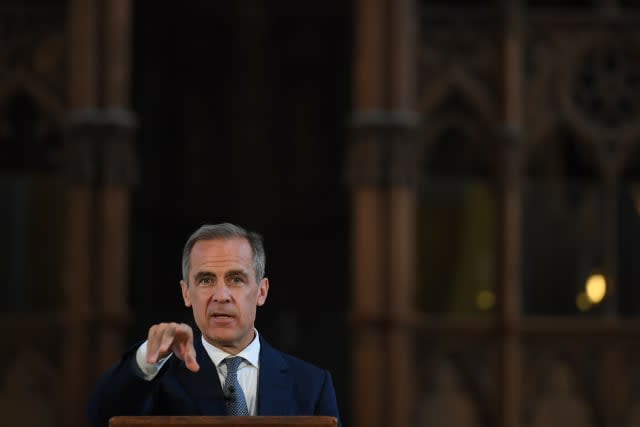Mark Carney warns Bank of England cannot solve Brexit and housing problems

Mark Carney has used an introductory speech at the Bank of England's independence conference to remind leaders about the organisation's limited influence on the economy, in particular the impact of Brexit.
The governor stressed that the Bank alone "cannot solve broader societal challenges" across the UK and suggested there has been an exaggeration of its powers.
"This bears emphasising because in recent years a host of issues have been laid at the door of the Bank of England from housing affordability to poor productivity.
"Calls for the Bank to solve these challenges ignore the Bank's carefully defined objectives. And they confuse independence with omnipotence," he said.
Mr Carney made the comments at a London conference marking 20 years since the Bank's independence from government control.
Our Independence #20YearsOn Conference starts Thursday, with @Citi Chief Economist Willem Buiter among the speakers. https://t.co/b4fyVAPAkUpic.twitter.com/X9rnv6mIVz
-- Bank of England (@bankofengland) September 27, 2017
He said the Bank's responsibilities - monetary and financial stability - are "foundational" and "necessary for prosperity", but they "aren't sufficient to deliver it".
"Ultimately, the prosperity of the UK will reflect not just the final Brexit arrangements but also the Government's fiscal and structural policies," he said, adding that Prime Minister Theresa May - who he was introducing at the conference - would be "best placed" to discuss those topics.
He said most of the "necessary adjustments" in light of Brexit are "real in nature" and therefore "not in the gift of central bankers".
"The Bank will do everything it can to support adjustment consistent with its statutory obligations," he explained, saying it would continue to assess and mitigate the risks associated with Britain's divorce from the EU.
He also assured that monetary policy - set by the Bank's dedicated committee - would be set to achieve its 2% inflation target, but in a way that helps smooth the economic transition and "supports jobs in the wake of very large external forces".
Inflation is currently 2.9%, prompting growing speculation that the Bank's Monetary Policy Committee could raise rates as early as its November meeting.
"Banks will be capitalised so that they can withstand any severe shock that could be associated with Brexit - however unlikely - and still meet demand for credit," Mr Carney added.
"The financial system as a whole will have the capacity to finance the transition and the opportunities beyond.
"These are the best contributions the Bank of England can make to the good of the people of the United Kingdom."
The Bank's Financial Policy Committee (FPC) last week warned that UK banks will need to put aside an extra £10 billion to help protect them from consumer credit losses after the Bank of England warned that lenders are "underestimating" the risks of growing household debt.
It also said it would continue to monitor the effects of Brexit, particularly in light of the potential disruption to the financial services industry.
The FPC went on to raise concerns over the loss of cross-border contracts for insurance and derivatives, restrictions on sharing personal data between the UK and EU, and cross-border banking, central clearing and asset management.


